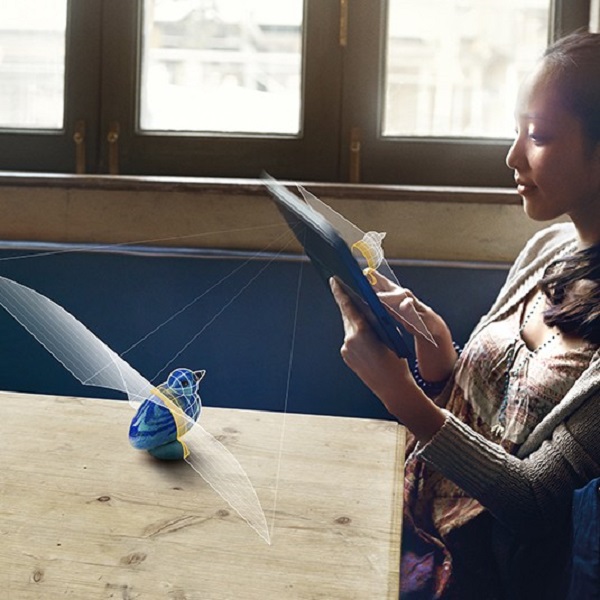The world’s largest semiconductor maker has developed a 3D scanner small enough to fit in the bezel of consumer tablets. The first mobile devices to feature it will be available sometime next year.
The emergence of 3D printers and scanners will radically transform a lot of industries. As 3D printers get more affordable, we should find ways to scan anything we want in order to reproduce it. One issue some 3D scanners have is that they cannot tell the dimensions of the scanned object. Intel’s RealSense depth-sensing technology, on the other hand, can make use of the tablet’s camera to estimate the dimensions, and the measurement is reasonably accurate.

Intel CEO Brian Krzanich explained that “Our goal is to just have a tablet that you can go out and buy that has this capability. Eventually within two or three years I want to be able to put it on a phone.” He also expressed his enthusiasm about being able just copy any object in 3D: “The idea is you go out, you see something you like and you just capture it.”
During the demonstration made at MakerCon, Krzanich showed the world how a human can be scanned and rendered in 3D in a matter of minutes. Upon doing so, the resulting 3D model can be manipulated or 3D printed. I imagine that this would make special effects in movies a lot easier.
Stand-up comedians often laugh about Chinese people making knock-offs of major brands, and if 3D scanners turned mainstream with the help of Intel, things could get a very interesting turn. Of course, some products are made with technologies that aren’t visible to the naked eye. Give it a few years, though, and I bet we’ll have 3D printers for clothes and basically anything you can think of.
Intel won’t stop at putting 3D scanners in tablets and smartphones, though. The company also intends to put them in drones. Depending on the purpose, that could get really interesting. In the wrong hands, however, 3D scanning drones could represent the perfect tools for espionage.
The Dell Venue 8 7840 scamera that Intel showcased earlier this year can be considered a predecessor of 3D scanning tablets, as its six cameras work together in order to tell depth. It will be interesting to see what other technologies Intel has in store for us, as in the past few weeks they rolled out surprise after surprise.
Be social! Follow Walyou on Facebook and Twitter, and read more related stories about the Intel RealSense Dell Venue 8 7840 Android tablet, and Intel’s collaboration with Fossil on wearables.










